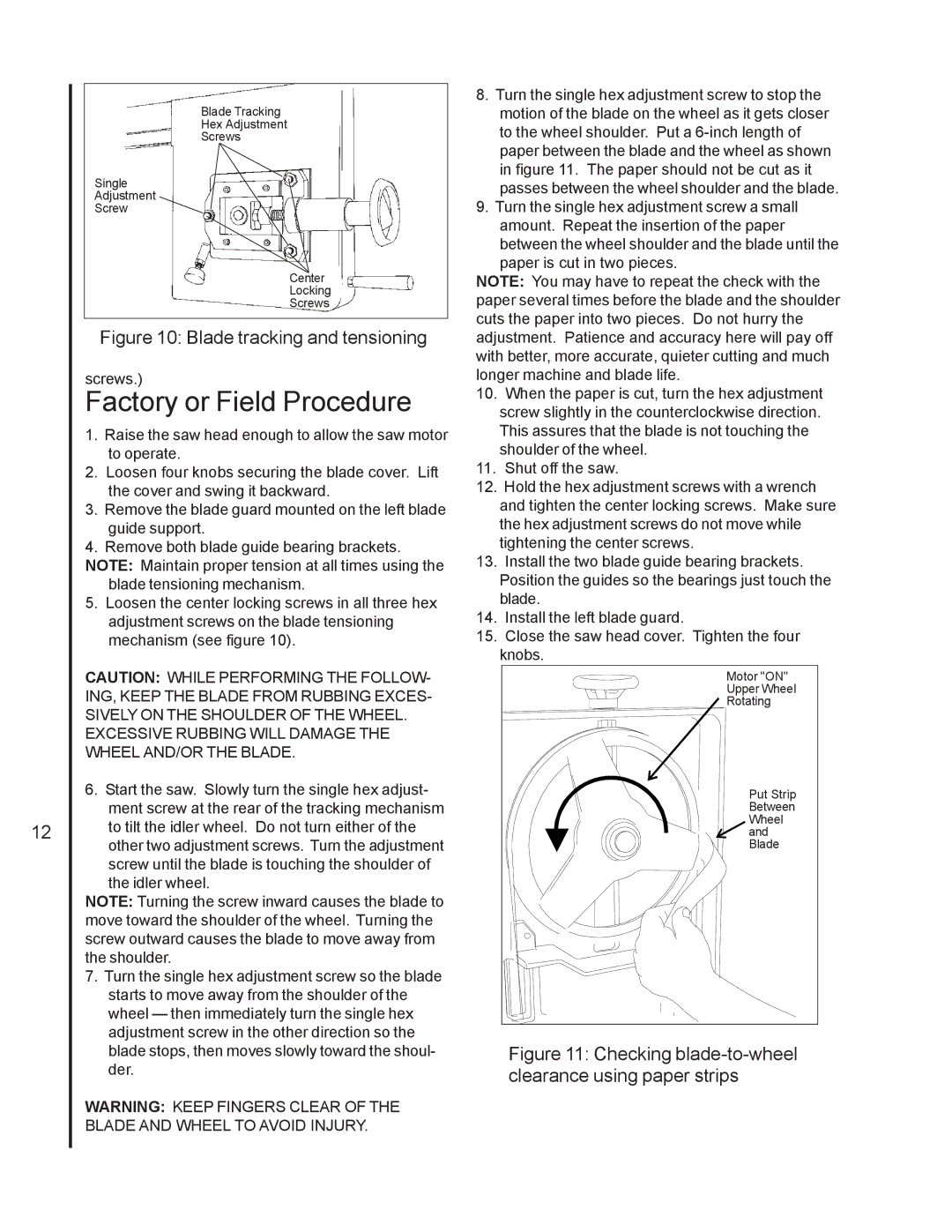J-7060 specifications
Jet Tools J-7060 is a highly regarded model in the woodworking community, known for its reliability and precision. This bandsaw is designed to cater to both hobbyists and professional woodworkers, offering a robust platform for a variety of cutting tasks. Its powerful motor and thoughtful engineering make it stand out in a crowded market.One of the primary features of the J-7060 is its heavy-duty construction. Built with a solid cast iron frame, this bandsaw provides exceptional stability during operation, reducing vibrations and allowing for cleaner cuts. The resilience of the materials used in its design ensures longevity, making it a worthwhile investment for those looking to enhance their workshop.
Powering this exceptional tool is a 1.5 HP motor, which delivers ample power for cutting through various materials, including hardwoods and softwoods with ease. The motor is equipped with a reliable dual voltage capability, allowing it to function efficiently in different voltage environments. This flexibility is especially beneficial for a range of workshop setups.
The J-7060 also incorporates advanced technology in its cutting mechanism. It features a 16-inch resaw capacity, enabling woodworkers to process materials up to 16 inches thick. This remarkable capacity is complemented by a blade tensioning system that allows for quick adjustments, ensuring optimal performance and precise cuts.
The Bandsaw's table is another highlight, as it comes with a large, extendable surface that provides ample workspace. This ensures that users can handle larger pieces of lumber effortlessly. The table is also made of cast iron, featuring precise tilting capabilities from 0 to 45 degrees, allowing for versatile cut angles suited for various projects.
Adding to the ease of use, the J-7060 is equipped with an integrated dust collection port that helps maintain a clean working environment. This feature not only makes cleanup simpler but also enhances visibility while cutting, contributing to overall safety during operation.
Ultimately, the Jet Tools J-7060 combines a powerful motor, heavy-duty construction, and user-friendly features, making it an exceptional choice for anyone aiming to elevate their woodworking experience. Whether tackling intricate projects or managing larger materials, this bandsaw is engineered to deliver performance and reliability over years of dedicated service. Its innovative design and practical functionalities make it a respected tool in the industry, perfect for both seasoned professionals and enthusiastic DIYers.

